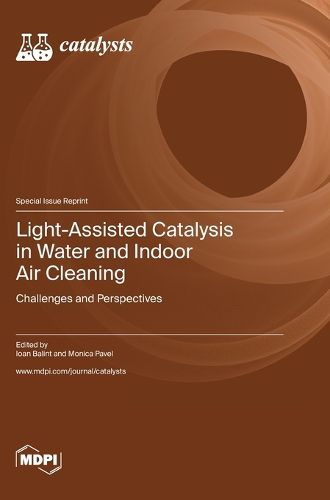Readings Newsletter
Become a Readings Member to make your shopping experience even easier.
Sign in or sign up for free!
You’re not far away from qualifying for FREE standard shipping within Australia
You’ve qualified for FREE standard shipping within Australia
The cart is loading…






This title is printed to order. This book may have been self-published. If so, we cannot guarantee the quality of the content. In the main most books will have gone through the editing process however some may not. We therefore suggest that you be aware of this before ordering this book. If in doubt check either the author or publisher’s details as we are unable to accept any returns unless they are faulty. Please contact us if you have any questions.
The detrimental effects of environmental pollution on human health, combined with global climate change, make it a critical contemporary problem. Despite the fact that water covers more than 71% of the Earth's surface, ensuring access to high-quality drinking water for everyone is a major concern that societies are encountering in the 21st century. Utilizing renewable solar light and a catalyst to mineralize various harmful chemicals present in indoor air and water sources into benign small molecules, such as H2O and CO2, is an attractive approach. In this context, photocatalytic processes have consistently offered smart, green, and eco-friendly scale-up methods for environmental remediation. Numerous photocatalysts have proven to be successful in achieving the mineralization of chlorinated pollutants, organic contaminants, dyes, or antibiotics. An analysis of the existing literature reveals the need for research studies to focus on developing efficient photocatalysts capable of mineralizing contaminants into non-toxic CO2. Only such photocatalytic materials should be envisaged for environmental remediation. This Special Issue, titled "Light-Assisted Catalysis in Water and Indoor Air Cleaning: Challenges and Perspectives", is a collection of ten papers, including three reviews and seven research articles. The aim of this Special Issue is to present recent advancements in the photocatalytic removal of pollutants, elucidating the main factors contributing to their mineralization and the implication of reactive oxygen species (ROS) through dedicated experiments.
$9.00 standard shipping within Australia
FREE standard shipping within Australia for orders over $100.00
Express & International shipping calculated at checkout
This title is printed to order. This book may have been self-published. If so, we cannot guarantee the quality of the content. In the main most books will have gone through the editing process however some may not. We therefore suggest that you be aware of this before ordering this book. If in doubt check either the author or publisher’s details as we are unable to accept any returns unless they are faulty. Please contact us if you have any questions.
The detrimental effects of environmental pollution on human health, combined with global climate change, make it a critical contemporary problem. Despite the fact that water covers more than 71% of the Earth's surface, ensuring access to high-quality drinking water for everyone is a major concern that societies are encountering in the 21st century. Utilizing renewable solar light and a catalyst to mineralize various harmful chemicals present in indoor air and water sources into benign small molecules, such as H2O and CO2, is an attractive approach. In this context, photocatalytic processes have consistently offered smart, green, and eco-friendly scale-up methods for environmental remediation. Numerous photocatalysts have proven to be successful in achieving the mineralization of chlorinated pollutants, organic contaminants, dyes, or antibiotics. An analysis of the existing literature reveals the need for research studies to focus on developing efficient photocatalysts capable of mineralizing contaminants into non-toxic CO2. Only such photocatalytic materials should be envisaged for environmental remediation. This Special Issue, titled "Light-Assisted Catalysis in Water and Indoor Air Cleaning: Challenges and Perspectives", is a collection of ten papers, including three reviews and seven research articles. The aim of this Special Issue is to present recent advancements in the photocatalytic removal of pollutants, elucidating the main factors contributing to their mineralization and the implication of reactive oxygen species (ROS) through dedicated experiments.